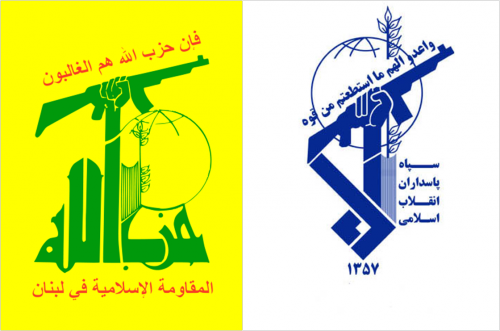
Israel’s interest is a Syria without Bashar al-Assad and without Iran, Israeli Defense Minister Avigdor Lieberman said at a conference on Thursday. But after government troops regained control of Aleppo, it’s clear that the Syrian president is not about to leave. Israel is not intervening in the war in Syria and has felt the consequences much less than its neighboring countries Lebanon and Jordan.
But the Golan Heights border has become tense. Since the beginning of the war in 2011, there have been numerous incidents of cross-border fire – something which hadn’t occurred in decades. If shots are fired into Israeli territory, the army reacts with counter-fire to send a clear message that the country will protect its sovereignty. Most incidents are unintentional, but recently, militants linked to the so-called “Islamic State” directly attacked Israeli soldiers from Syria.
Maintaining the status quo
Today’s border between the two countries is the cease-fire line of 1967, when Israel occupied the Golan Heights in the Six-Day War. Since Israel was founded, it has either been in a state of war with Syria or an armistice arrangement has been in place. Syria has never recognized the Jewish state, and consequently there are no diplomatic relations.
At the moment, Israel’s government is trying to maintain the status quo in the Golan. The army’s task is to keep spillover from the war in check. Prime Minister Benjamin Netanyahu and other members of the government have reiterated their position throughout – that Israel will not intervene in Syria, but will protect its security interests when necessary.
One of those is “preventing … advanced weapons, military equipment and weapons of mass destruction [from reaching] Hezbollah,” Lieberman told EU ambassadors on December 7. He was referring to reports – largely confirmed by Arab and Israeli media – that Israel had flown two attacks close to Damascus the night before. One of the targets was a Hezbollah weapons convoy.
Fear of a stronger Hezbollah
Israel’s greatest concerns – much greater than that of IS-affiliated militants in the Golan – are Iran’s growing influence on its northern neighbor state and that Hezbollah, which is supported by Iran and Assad, is becoming increasingly stronger.
“IS is a tactical threat, while Iran and Hezbollah are larger, strategic threats,” according to Benedetta Berti, a researcher at the independent Institute for National Security Studies in Tel Aviv: “In Israel, Hezbollah is seen as the number one threat among the non-state actors, more dangerous than Hamas.” The Shiite Islamist group based in Syria is classified as a terrorist group by Israel, the US, Canada, the Arab League and other countries. It is believed to be fighting in the war in Syria with 3,000 to 4,000 soldiers. Iran, too, has sent soldiers to Syria.
Assad was already allied with Iran and Hezbollah before the war began in 2011. “But because of the war, there is also a physical presence now – troops. And the Assad regime has changed because it has become more dependent on outside supporters,” Berti says of the situation today.
The threat to Israel is serious in the long run, Berti says, adding that the whole region will pay a price for instability caused by the war, including Israel. But there is no imminent threat, since at the moment the warring parties are embroiled in Syria.
Israeli journalist and military affairs expert Yossi Melman interprets that as an advantage for Israel: “Hezbollah is gaining fighting experience, but it has sustained heavy losses in Syria that have weakened it.”
Russia preferable to Iran
With the attacks on Syrian territory, Israel risked the ire of Putin, who supports Assad. Though Israel and Russia have coordinated their activities in Syria, it is unlikely that Israel informed Russia ahead of its military actions.
“The targets attacked inside Syria were very important to Israel and worth risking the ramifications,” Melman told DW. “Israel is mainly concerned about weapons that will increase the accuracy of Hezbollah ground-to-ground missiles, capable of hitting almost every strategic or military site in Israel, including the nuclear reactor in Dimona and IDF [Israel’s Army] headquarters in Tel Aviv.”
The ties between Russia and Israel have grown within the last year – Netanyahu has visited Moscow a couple of times since 2015. One reason is to avoid confrontations in Syrian airspace. Another is Netanyahu’s hope that the Russian presence in Syria will keep Israel’s enemies from gaining power. But it’s a double-edged sword, because Israel also has to take great care not to get in the way of the superpower on its doorstep.
DW

Leave a Reply
You must be logged in to post a comment.